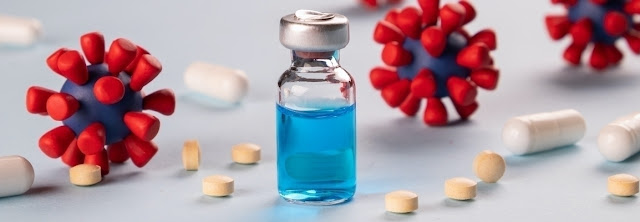Link : Promising COVID Treatments Could be Growing Under The Sea – Here’s How to Find Them .
More than 18 months into the pandemic, we’re still hunting for effective antiviral treatments for COVID – medicines that target the coronavirus itself and stop it from developing in the body.
So far we have only a handful of options. Remdesivir has been authorised for use, but the latest research shows it doesn’t improve outcomes for COVID patients, and so the World Health Organization has recommended it not be used. A new alternative, molnupiravir, will soon be available, but demand will be high. It could also be very expensive for some patients.
So if we need alternative antivirals, where will we find them? Possibly in nature. It’s an outstanding hub for valuable natural compounds, and provided us with one of the most important scientific discoveries in history: penicillin, the first naturally occurring antibiotic to be used therapeutically. Thanks to this drug, various diseases caused by bacteria are no longer life threatening.
There’s a very good chance that researchers could discover a highly effective antiviral agent in nature too, if they were able to test all of the substances within the natural environment. This, however, would be an enormous task. So we need to find shortcuts – which is something I and my colleagues have been working on.
Finding Medicines Under The Waves .
The marine environment in particular is a treasure trove for potential new medicines. Many products derived from marine organisms have been approved by the US Food and Drug Administration for medical use, for example, and many others are currently in different stages of clinical trials. However, the sea and its natural products are still under-investigated as far as medicines are concerned.
One set of substances that are particularly interesting are marine sulphated polysaccharides, or MSPs. These are a type of carbohydrate that contain sulphur, and are mainly found in the cell walls of marine algae or seaweeds. They’re also less commonly found in some fish skins and in mangrove plants.
They’re significant because they’ve shown that they can inhibit many disease-causing viruses, such as herpes simplex virus, HIV, chikungunya virus, cytomegalovirus, influenza and hepatitis virus.Promising COVID treatments could be growing under the sea – here’s how to find them
But even if we know MSPs in general are worth investigating, discovering which ones specifically are effective against SARS-CoV-2, the virus that causes COVID, would be very time and resource-consuming using traditional laboratory testing.
Simulating Interactions .
To get around this, my colleagues and I used computer-assisted methods to predict how MSPs would behave with the coronavirus, and so filter out those unlikely to work against it. Many drugs currently on the market were developed with this kind of assistance, including the flu treatment zanamivir and the HIV drugs nelfinavir and saquinavir.
First, we looked at past research, focusing on papers that mentioned MSPs having an effect against different viruses. We looked at around 80 papers, spanning 25 years, and came up with a shortlist of 45 substances that might potentially have an antiviral effect and so be worth investigating further.
These shortlisted MSPs came from various marine sources, including different types of algae, microalgae, sea cucumbers and squid cartilage.
...


